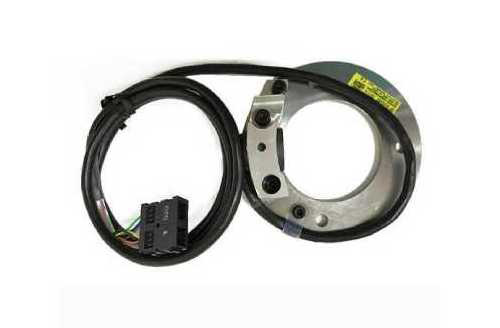


We are Awakin Technologies one of the top-notch Sensors & Encoder Suppliers, Dealers, Traders in Pune, Maharashtra. We have more than 15 years of industrial work experience. We are the top provider of top-notch services in all of India. Along with many years of superior customer service, we have an extensive history of guaranteeing repairs for electronic components and remanufacturing Sensors & Encoder.
A sensor is a machine that detects and reacts to changes in its surroundings by converting something that is tangible into an electrical signal. Numerous applications, including machine control, gathering data from the environment, and physical system monitoring, call for the employment of these sensors. One type of sensor that is particularly useful for figuring out the position of an object, speed and direction is an encoder. When compared to other sensors that might just produce a simple on/off signal, encoders provide more accurate data regarding the movement of an object.
We are Awakin Technologies, Sensors & Encoder Suppliers, Dealers, Traders in Pune, Maharashtra. We guarantee quick completion of all repairs thanks to our large inventory of replacement components. Our goal is to reduce your downtime by offering the repairs and spare components you require as soon as possible. Our commitment to quality and outstanding client service is demonstrated by the fact that we only work with the best electronic professionals, assign each customer a dedicated account manager to keep them informed, and have the most attentive sourcing team to locate your difficult-to-find outdated parts. Contact us today to discuss your Sensors & Encoder needs.
1. What types of sensors are commonly used in industrial applications?
Commonly used sensors in industrial applications include temperature sensors, pressure sensors, proximity sensors, level sensors, and flow sensors. Each type is designed to measure specific parameters and is selected based on the application requirements.
2. How do I choose the right sensor for my application?
To choose the right sensor, consider the following factors: the parameter to be measured (e.g., temperature, pressure), the range of measurement, the required accuracy, environmental conditions (e.g., temperature, humidity, presence of chemicals), and the compatibility with your control system (e.g., analog vs. digital output).
3. What is the difference between analog and digital sensors?
Analog sensors produce a continuous signal that is proportional to the measured parameter, while digital sensors provide discrete signals, often in the form of binary data. Analog sensors are typically used for applications requiring high precision and real-time data, whereas digital sensors are preferred for their ease of integration with modern digital systems and better noise immunity.
1. What is an encoder and how does it work?
An encoder is a device that converts motion or position information into an electrical signal. It works by detecting the movement or position of a mechanical component and converting this data into a readable format, such as a digital code or an analog signal. Encoders are widely used in robotics, industrial control systems, and various automation applications.
2. What are the main types of encoders?
The main types of encoders are incremental and absolute encoders. Incremental encoders provide relative position information by generating a specific number of pulses per rotation. Absolute encoders provide a unique code for each position, offering precise and absolute position data even after a power loss.
3. How do I select the right encoder for my application?
Selecting the right encoder involves considering several factors: the type of motion (linear or rotary), the required resolution, the environmental conditions (e.g., temperature, dust, vibration), the output signal type (analog or digital), and the compatibility with your control system. Additionally, the application’s specific requirements, such as speed, accuracy, and mounting options, should be taken into account.